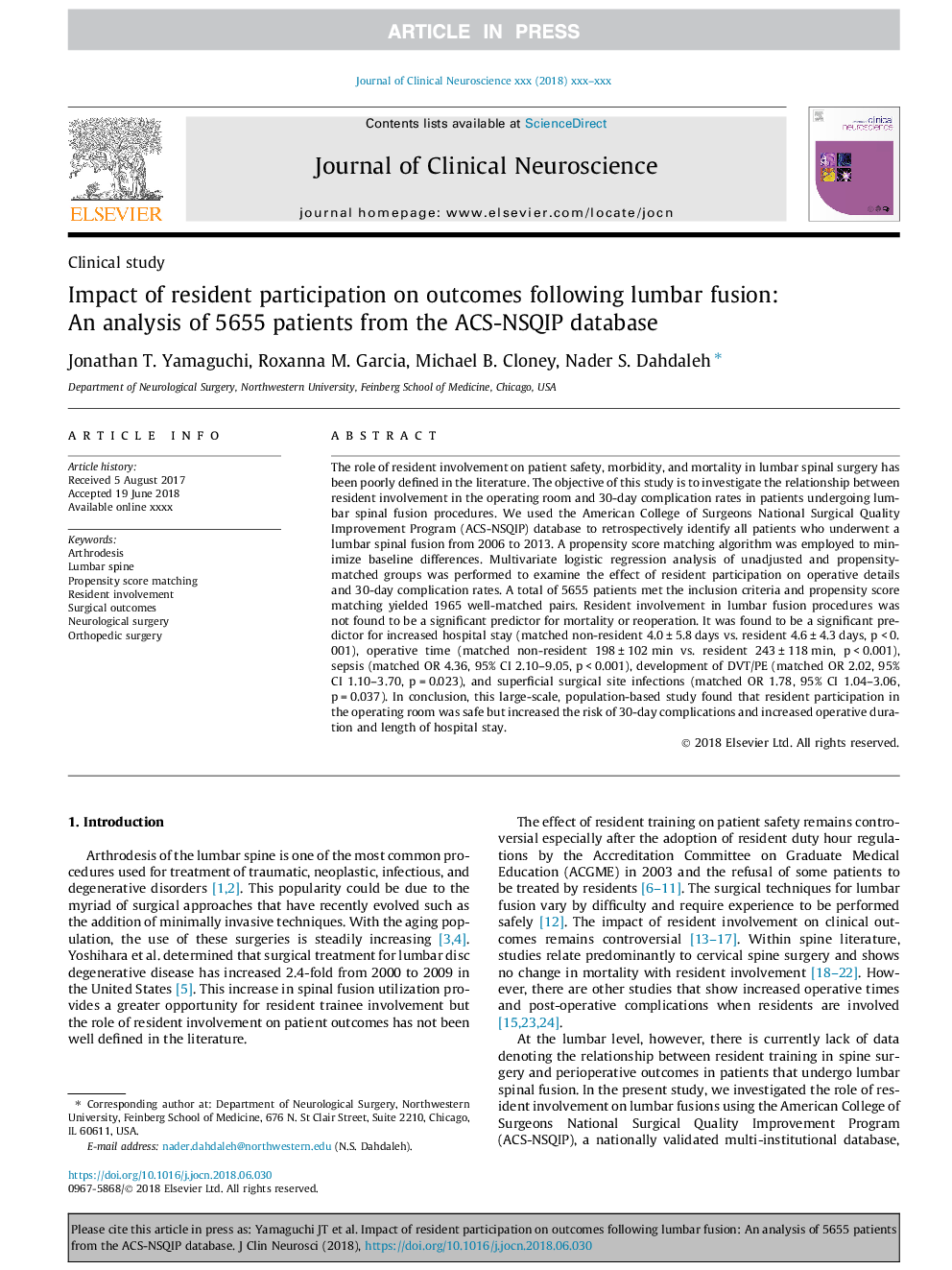| Article ID | Journal | Published Year | Pages | File Type |
|---|---|---|---|---|
| 11009518 | Journal of Clinical Neuroscience | 2018 | 6 Pages |
Abstract
The role of resident involvement on patient safety, morbidity, and mortality in lumbar spinal surgery has been poorly defined in the literature. The objective of this study is to investigate the relationship between resident involvement in the operating room and 30-day complication rates in patients undergoing lumbar spinal fusion procedures. We used the American College of Surgeons National Surgical Quality Improvement Program (ACS-NSQIP) database to retrospectively identify all patients who underwent a lumbar spinal fusion from 2006 to 2013. A propensity score matching algorithm was employed to minimize baseline differences. Multivariate logistic regression analysis of unadjusted and propensity-matched groups was performed to examine the effect of resident participation on operative details and 30-day complication rates. A total of 5655 patients met the inclusion criteria and propensity score matching yielded 1965 well-matched pairs. Resident involvement in lumbar fusion procedures was not found to be a significant predictor for mortality or reoperation. It was found to be a significant predictor for increased hospital stay (matched non-resident 4.0â¯Â±â¯5.8â¯days vs. resident 4.6â¯Â±â¯4.3â¯days, pâ¯<â¯0.001), operative time (matched non-resident 198â¯Â±â¯102â¯min vs. resident 243â¯Â±â¯118â¯min, pâ¯<â¯0.001), sepsis (matched OR 4.36, 95% CI 2.10-9.05, pâ¯<â¯0.001), development of DVT/PE (matched OR 2.02, 95% CI 1.10-3.70, pâ¯=â¯0.023), and superficial surgical site infections (matched OR 1.78, 95% CI 1.04-3.06, pâ¯=â¯0.037). In conclusion, this large-scale, population-based study found that resident participation in the operating room was safe but increased the risk of 30-day complications and increased operative duration and length of hospital stay.
Keywords
Related Topics
Life Sciences
Neuroscience
Neurology
Authors
Jonathan T. Yamaguchi, Roxanna M. Garcia, Michael B. Cloney, Nader S. Dahdaleh,
